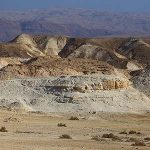Isaiah 13
Read the Text
KJV
King James Version
NRSV
New Revised Standard Version
NIV
New International Version
LEB
Lexham English Bible
HEB
Hebrew Bible
ASV
American Standard Version
NET
New English Translation
Summary
Babylon's destruction is a type of the destruction at the Second Coming. Babylon will fall forever.
| KJV | JST |
| (3) I have commanded my sanctified ones, I have also called my mighty ones for mine anger, even them that rejoice in my highness. | (3) I have commanded my sanctified ones, I have also called my mighty ones for my anger is not upon them that rejoice in my highness. |
| (4) The noise of a multitude in the mountains, like as of a great people; a tumultuous noise of the kingdoms of nations gathered together: the Lord of hosts mustereth the host of the battle. | (4) The noise of the multitude in the mountains, like as of a great people; a tumultuous noise of the kingdoms of nations gathered together: the Lord of hosts mustereth the host of the battle. |
| (5) They come from a far country, from the end of heaven, even the Lord, and the weapons of his indignation, to destroy the whole land. | (5) They come from a far country, from the end of heaven, yea the Lord, and the weapons of his indignation, to destroy the whole land. |
| (15) Every one that is found shall be thrust through; and every one that is joined unto them shall fall by the sword. | (15) Every one that is proud shall be thrust through, and every one that is joined to the wicked</b< shall fall by the sword. |
| (22) And the wild beasts of the islands shall cry in their desolate houses, and dragons in their pleasant palaces: and her time is near to come, and her days shall not be prolonged. | (22) And the wild beasts of the islands shall cry in their desolate houses, and dragons in their pleasant palaces: and her time is near to come, her days shall not be prolonged, for I will destroy her speedily. Yea for I will be merciful unto my people, but the wicked shall perish. |
Commentary
Bible Central Commentary
These free resources were developed for use in the free ScripturePlus app. Many of the contributors are professors of religion and ancient scripture at Brigham Young University.
Historical Commentaries
Many of the commentaries below are in the public domain and were authored over 100 years ago. In many cases, they do not reflect the findings of modern scholarship, but they may be helpful for understanding the history of biblical scholarship.
Videos
Watch selected videos on this chapter of the Bible to enhance your study. Note: Not all videos included come from a Latter-day Saint perspective. Inclusion on this list should not imply endorsement for all content.
Overview: Isaiah 1-39
BibleProject
Historical Settings
Time
*All Dates Are Approximate, according to the narrative of the Bible. These dates may reflect literary significance as opposed to the precise dates of history.
See Biblical ChronologyFurther Reading
Donald W. Parry and Janet L. Garrand Willis, “Notes on Vocabulary in Isaiah 2-11, 13-14, 29, 48-54,” in Isaiah in the Book of Mormon, ed. Donald W. Parry and John W. Welch (Provo, UT: Foundation for Ancient Research and Mormon Studies, 1998), 409–422.
David Rolph Seely, “Nephi’s Use of Isaiah 2-14 in 2 Nephi 12-30,” in Isaiah in the Book of Mormon, ed. Donald W. Parry and John W. Welch (Provo, UT: Foundation for Ancient Research and Mormon Studies, 1998), 151–169.







Complete Commentary on the Whole Bible
Matthew Henry (1706)
Commentary on the Bible
Adam Clarke (1831)
Expository Notes of Dr. Thomas Constable
Thomas Constable
Rashi’s Commentary
Rashi (Shlomo Yitzchaki)
Notes on the Bible
Albert Barnes (1834)
Exposition of the Entire Bible
John Gill (1746–63)
Biblical Commentary on the Old Testament
Carl Friedrich Keil and Franz Delitzsch (1857–78)
Explanatory Notes on the Whole Bible
John Wesley (1754–65)